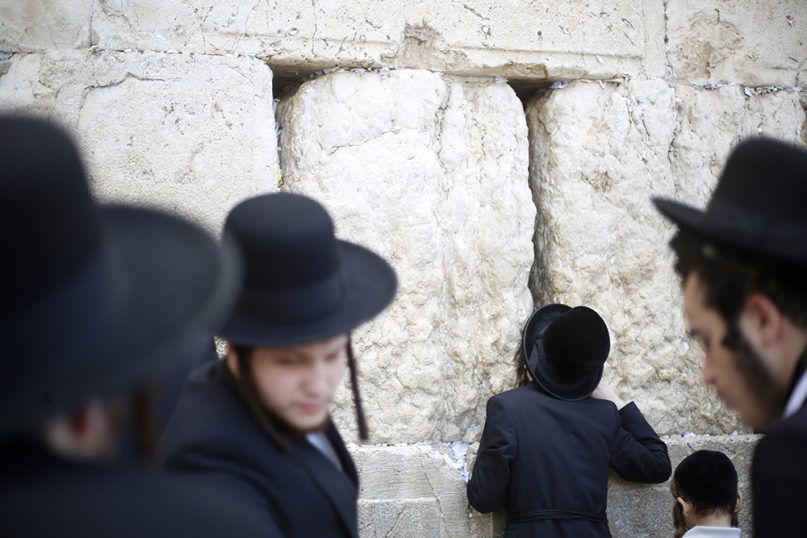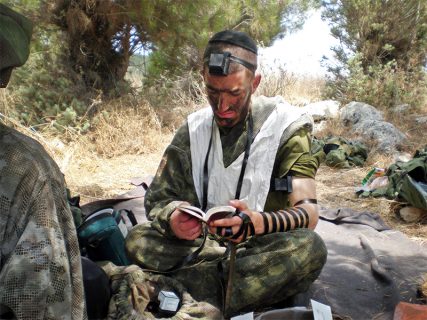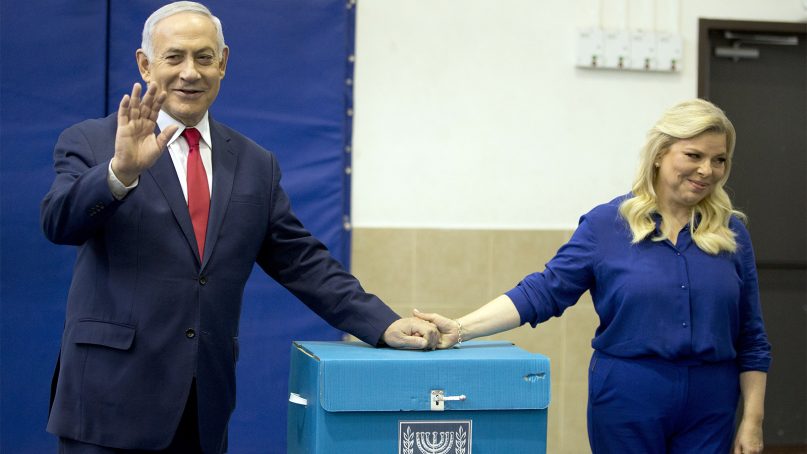JERUSALEM (RNS) — When Amir Benveniste, an ultra-Orthodox Israeli, stepped into the voting booth this week, religious considerations were uppermost in his mind.
“I could not in good conscience vote for a party that would desecrate Shabbat and turn us into a Western country where the working people are forced to work on their holy days while the rich enjoy their vacations,” Benveniste said.
Like many ultra-Orthodox Jews, Benveniste followed his rabbi’s call to vote for the United Torah Judaism party “because ultimately he knows more than I,” he said. “The party will defend Shabbat and prioritize help for the poor, as is required by the Torah.”
RELATED: How Netanyahu’s win could further polarize American Jews
While ultra-Orthodox Jews in Israel, known as haredim, comprise just 10 percent of the population, they will continue to exert outsized power as a swing voting bloc after the country’s election Tuesday (April 9).
The vote resulted in a virtual tie between Prime Minister Benjamin Netanyahu’s Likud party and Blue and White, the party led by his most significant challenger, Benny Gantz. Under Israeli law, the party leader who can cobble together a coalition of at least 61 of the Knesset’s 120 seats will lead the next government, pending the president’s approval.
The ultra-Orthodox Shas and United Torah Judaism parties are already in negotiations with Netanyahu, who has served four terms as Israel’s prime minister.

Ultra-Orthodox males pray ahead of the Jewish New Year, Rosh Hashanah, at the Western Wall, the holiest site where Jews can pray in Jerusalem’s Old City, on Sept. 9, 2018. (AP Photo/Ariel Schalit)
While the two haredi parties won only 15-16 Knesset seats total, “it’s not really about the number of seats but about your influence in the coalition,” said Gilad Malach, director of the Ultra-Orthodox Society Program at the Israel Democracy Institute. “In the last government, the parties had only 13 seats but quite a bit of influence.”
The parties are expected to again focus on the many national issues that intersect with Judaism. Other parties can be expected to join a Netanyahu-led coalition with a view to ending hospital overcrowding or annexing West Bank settlements; the haredi parties “will demand higher budgets for their religious institutions, a ban on public construction projects on Shabbat and a conscription exemption,” Malach said.
“We’re likely to see new records in the amount of government funding to haredi religious institutions,” said Uri Regev, president and CEO of the organization Hiddush – Freedom of Religion in Israel. Non-Orthodox institutions in Israel aren’t recognized by the state and receive virtually no government funding.
The military draft is a particularly contentious issue in Israel, where ultra-Orthodox Jews have long been exempted from the country’s mandatory service. All other Jews, as well as male Druze and Circassians, are drafted. Arabs are exempt on security grounds.
In Israel, where the division between religion and state is nonexistent, the haredi parties’ continued clout will quash any hopes of change to the status quo on religion and state, according to several observers.

Moshe Lifshitz, a haredi (ultra-Orthodox) Israeli, wears tefillin while praying in the Israeli army. Lifshitz broke with his community’s tradition when he chose to enlist in the Israeli army rather than apply for an exemption to study Torah full time. Photo courtesy of Moshe Lifshitz
“There will be no way to implement the Western Wall deal for a state-recognized egalitarian section at the site,” wrote Jeremy Sharon in The Jerusalem Post, “no way to increase Jewish pluralism in the Jewish state; no way to enact civil marriage or civil unions; no reform to the conversion system to deal with intermarriage either; and no reform to the provision of religious service.”
In addition to affecting the everyday lives of Jewish Israelis, these strictures promise to exacerbate tensions between the Israeli government and non-Orthodox Diaspora Jews, according to Regev.
Many American Jews, who are primarily Reform and Conservative, are already deeply angered by Netanyahu’s failure to implement a 2017 agreement that would have created a section at the Western Wall where non-Orthodox groups would be allowed to set the rules for who can pray.
The refusal to recognize the wishes of Reform and Conservative Jews is of prime concern to Jodi Shapiro, who plans to immigrate to Israel in the coming months.
Although not yet a citizen, and therefore unable to vote in this election, Shapiro urged her Israeli friends to vote for Gantz’s centrist Blue and White party because it promised to promote religious pluralism.
Because Shapiro’s mother underwent a non-Orthodox conversion before Jodi was born, Israel’s Orthodox Chief Rabbinate will not recognize her as Jewish. This means she can’t marry under the auspices of the Chief Rabbinate and her marriage would not be recognized by the government.
“I still plan to make aliyah because I can’t change anything if I am not living in Israel,” Shapiro said, using the Hebrew word for moving to the Jewish homeland.
Once a citizen, she plans to vote for a center-left party in hopes of securing more freedom as a non-Orthodox Jew, even though politically she sees herself as right-of-center.
“I want to have a seat at the table,” she said.





